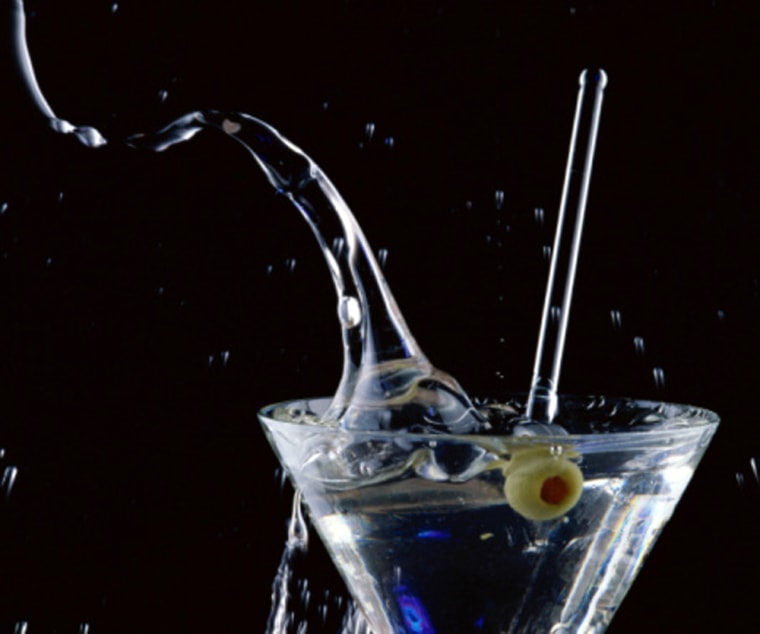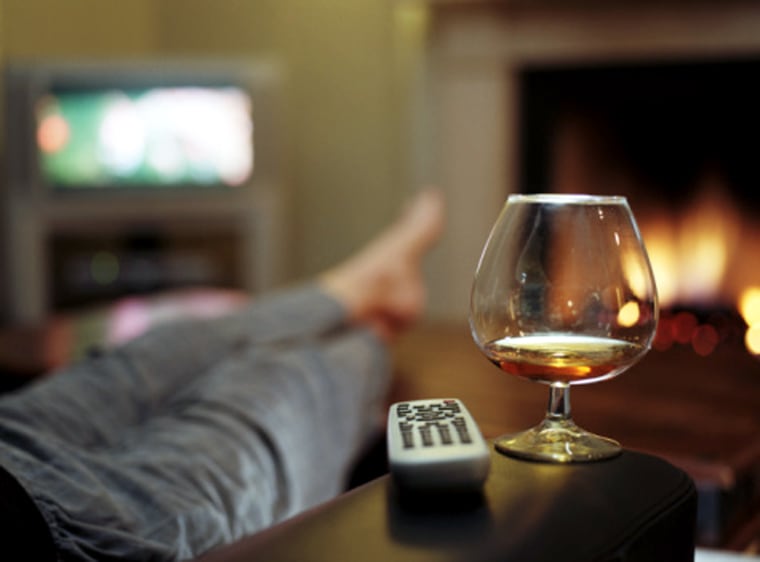When the Sandman evades us, some may slurp wine or maybe whiskey to hasten their Zzs. While experts have known for years that pre-slumber alcohol causes poor sleep, researchers finally reveal why: drinking interrupts our brain waves as we doze.
The proof? Test subjects imbibed then headed to bed at a sleep lab. To measure the electrical activity in their brains, the volunteers hit the sack wearing electrodes on their scalps—a test known as an electroencephalogram (EEG).
During the night, their brains behaved abnormally due to the alcohol in their symptoms, according to a study published Friday in the journal Alcoholism: Clinical & Experimental Research.

“Alcohol in certain quantities will put you to sleep, but the chemicals that are produced … break up the quality of sleep,” says Dr. Ilene Rosen, a board member of the American Academy of Sleep Medicine and program director for the University of Pennsylvania Sleep Fellowship, who was not involved in the study. “[This study] specifically looks at the … EEG effects that would explain the phenomenon in a way that hasn’t been looked at specifically.”
The tests—involving 24 subjects whose ages ranged from 18 to 24—were conducted over two nonconsecutive nights at the University of Melbourne in Australia. While imbibing, subjects sipped until their blood alcohol reached 0.1 percent. To get this wasted, participants guzzled between three to five drinks, depending each person’s size. By comparison a blood alcohol level of .08 percent means by law a person is too intoxicated to drive.
After the participants drank screwdrivers or a placebo—orange juice with a straw dipped in vodka to give the essence of booze—they were monitored by sleep researchers Christian L. Nicholas and Julia K. M. Chan, who co-authored the study. They tracked the EEG readings to examine what happened during each stage of sleep.
As the volunteers who imbibed slept, they experienced more slow-wave sleep—a deep sleep that precedes REM sleep—and less REM, the stage when dreaming occurs. Healthy people experience REM four or five times throughout the night. But, those who drank didn’t experience as much REM and when in slow-wave sleep, they actually woke. The booze caused abnormal sleep.
“[Subjects who drank] have wake patterns that are mixed between deep sleep and wakefulness,” says Dr. Alon Avidan, director of the UCLA Sleep Disorders Center and the UCLA Neurology Clinic, who was not involved in the study. “That is really interesting. This substance, when people use it, adversely affects the physiology of the brain.”
Avidan says doctors have observed similar troubled sleep in people who experience depression and fibromyalgia.
“[W]e were not particularly surprised that we were seeing signs of disturbance in the sleep EEG, however, the magnitude of the disturbance … was unexpected,” Nicholas, a NH&MRC Peter Doherty research fellow at the University of Melbourne, said via email.
While the study looked at young adults, Nicholas and Chan believe alcohol would react similarly in people who are later in their lives.
“It is likely that these results would be seen in older adults although the magnitude of the changes may be different,” says Nicholas.
The results aren’t specific to the type of alcohol—too many pints of beer, shots of liquor, or glasses of wine wreck sleep. And to be clear: Rosen suspects that a drink consumed three to four hours before bed wouldn’t damage one’s slumber too much. Avidan and Rosen say the study highlights what experts have known for years—alcohol causes terrible sleep.
“Patients often don’t recognize that alcohol is a poor selection as a sleep aid and it may help them for the first or second night [but] they tend to develop … tolerance,” says Avidan. “Alcohol should not be a sleep aid.”
